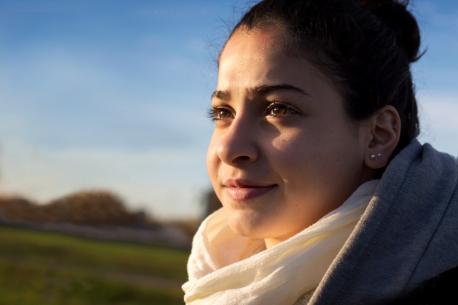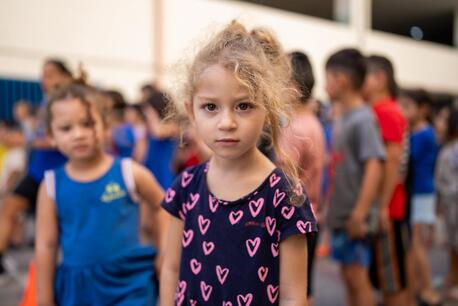
Refugee Olympic Team: Yusra Mardini's Story
“The war was hard," says Yusra Mardini, a Syrian refugee living in Germany. In Syria, developing her talent as a swimmer was a challenge. "Sometimes we couldn’t train because of the war. Or sometimes you had training, but there was a bomb in the swimming pool.”
As the war in Syria escalated in August of 2015, Yusra was forced to flee her home country. Yusra was only 17 years old. Along with several members of her family, including her older sister, Sarah, Yusra travelled to Lebanon, then Turkey. The family endured a life-threatening passage to the Greek Island of Lesbos.
On the way, Yusra's boat started taking on water. Yusra and Sarah slipped into the water and began pushing the boat toward Greece, saving the others onboard. After making it to Lesbos, the family crossed numerous European borders on their way north to Berlin.
Having made it out of the horrors of the Syrian conflict and now on to Rio, Yusra has been thinking about how she can serve others through her sport. "I want to represent all the refugees," she says. "I want to show everyone that, after the pain, after the storm, comes calm days."
Watch Yusra's story here:
The Refugee Olympic Team represents the key crisis of our time: that of refugees and the displaced. At a time when more than 65 million people are displaced, many of them children, the participation of the team in Rio sends a powerful signal of hope to refugees around the world. Further, the team aims to promote unity among refugees of various backgrounds and overcome divisions with host communities.
According to a new report by the UN Refugee Agency, on average 24 people were forced to flee each minute in 2015 — four times more than a decade earlier. Shockingly, children made up about half of the refugee population in 2015, up from 41 per cent in 2009. In the first six months of 2016 alone, 73,000 children arrived in Europe by way of a sea crossing that has been deadly for too many. Nearly 100,000 child refugees were separated from their parents or traveled alone. And for a growing number, there is nowhere to go.
Lean more about the Refugee Olympic Team here.
HOW TO HELP
There are many ways to make a difference
War, famine, poverty, natural disasters — threats to the world's children keep coming. But UNICEF won't stop working to keep children healthy and safe.
UNICEF works in over 190 countries and territories — more places than any other children's organization. UNICEF has the world's largest humanitarian warehouse and, when disaster strikes, can get supplies almost anywhere within 72 hours. Constantly innovating, always advocating for a better world for children, UNICEF works to ensure that every child can grow up healthy, educated, protected and respected.
Would you like to help give all children the opportunity to reach their full potential? There are many ways to get involved.





